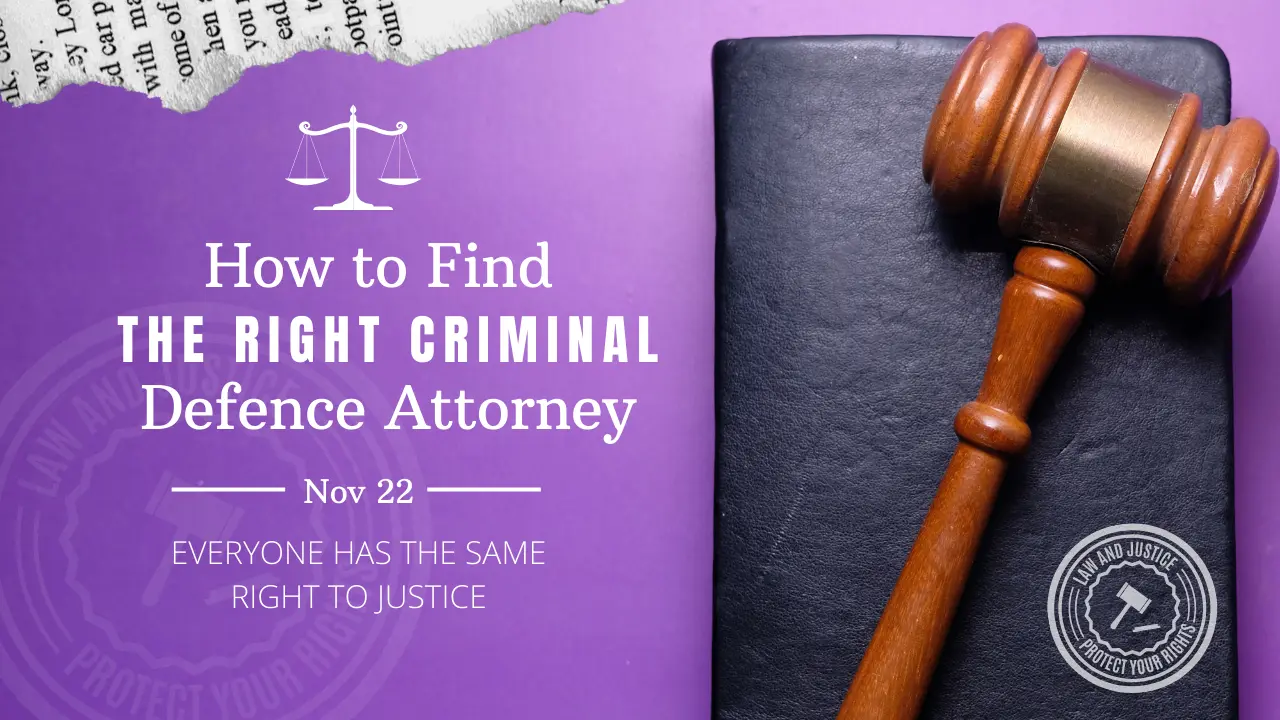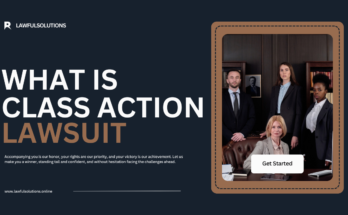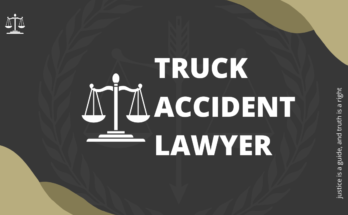How to Find the Right Criminal Defense Attorney: When you’re facing criminal charges, choosing the right criminal defense attorney is one of the most important decisions you’ll have to make. The legal system can be overwhelming, and having the right representation can make all the difference in the outcome of your case. But with so many attorneys to choose from, how do you know which one is right for you? This article will walk you through the steps of finding the right criminal defense attorney and provide you with information on what to look for, what to avoid, and how to make an informed decision that protects your rights and your future.
Why Choosing the Right Attorney Is Important
Your Freedom Is at Stake
When you’re facing criminal charges, the stakes couldn’t be higher. Whether it’s a minor offense or a serious crime, the outcome of your case can impact your life for years to come. Fines, jail time, permanent criminal records, and reputational damage are all possible consequences. Having the right criminal defense attorney on your side ensures that you have someone who will fight for your rights and strive for the best possible outcome, whether that’s a dismissal, a reduced charge, or an acquittal.
Understanding the Legal System
The legal system is complex, and if you’re not well-versed in criminal law, it can be easy to feel lost. A good attorney will not only know the law, but will also understand how local courts work, what strategies to use, and how to negotiate effectively with prosecutors. They can guide you every step of the way, explain your options, and make sure you understand the potential consequences of your decisions.
What to Look for in a Criminal Defense Attorney
1. Experience in Criminal Law
One of the first things to look for when choosing a criminal defense attorney is their experience. Not all attorneys are the same, and you need someone who specializes in criminal law. Criminal cases require specific knowledge, from understanding the laws of evidence to knowing how to conduct negotiations and trials. Look for an attorney who has years of experience handling cases similar to yours.
2. Local Court Experience
Every court system is a little different, and an attorney who is familiar with the local courts, judges, and prosecutors will have an advantage. They will know the preferences and tendencies of the key players in the courtroom, which can be invaluable when developing a defense strategy. Local knowledge can also help speed up the process and increase your chances of a positive outcome.
3. Reputation and Reviews
In today’s digital age, it’s easier than ever to learn about an attorney’s reputation. Start by checking online reviews. Look for feedback on their communication, professionalism, and the way they handle cases. Word of mouth can also be a powerful indicator. If you know someone who has been through a similar situation, ask them to tell you about their experience with their attorney.
4. Communication Skills
Your lawyer will be your advocate, and clear communication is essential. During your initial consultation, pay attention to how they explain things to you. Do they take the time to answer your questions? Are they direct and honest about your case? You want a lawyer who will keep you informed every step of the way and make sure you understand what is going on in your case.
5. Trial Experience
Not all criminal cases go to trial, but if yours does, you need a lawyer with trial experience. Some lawyers are experienced negotiators but have no trial experience. If your case is likely to go before a judge or jury, it is important that your lawyer feels comfortable and experienced in a legal setting.
6. Personal Attention
Avoid lawyers who treat you like a file. You want someone who will take the time to understand your individual situation and tailor their defense strategy accordingly. A good lawyer will ask you questions about the specifics of your case and work with you to develop a defense that meets your specific needs.
Red flags to avoid when choosing a criminal defense lawyer
1. Lack of specialization
Avoid lawyers who do not specialize in criminal law. A general practice lawyer may not have the in-depth knowledge needed to handle the complexities of your case. You want someone who has dedicated their practice to criminal defense and understands the intricacies of the law.
2. Unrealistic Promises
Be wary of attorneys who make guarantees or promises about the outcome of your case. No attorney can predict with certainty what will happen in court. While it’s important for your attorney to be optimistic and confident, they should also be realistic about potential outcomes.
3. Poor Communication
If an attorney is difficult to reach, doesn’t call you back, or doesn’t show interest during your consultation, that’s a sign that your case may not be a priority. You need someone who is accessible and responsive, especially in the world of criminal defense where the stakes are high.
4. Pressure Tactics
Some attorneys may pressure you into making quick decisions, especially when it comes to pleading guilty. Although quick action is often required in criminal cases, you should never feel pressured into making a decision without fully knowing your options.
5. Excessive Fees
While cost is a factor to consider, beware of attorneys who charge excessive fees without providing any value. Expensive does not always mean better. Make sure you understand the attorney’s fee structure, what services are included, and whether they offer payment plans if needed.
How to Find the Right Lawyer
1. Start Your Research
Begin your search by researching criminal defense attorneys in your area. Look for attorneys who specialize in criminal law and have experience handling cases like yours. Online directories, reviews, and bar association websites can be a good place to start.
2. Schedule Consultations
Most attorneys offer free or low-cost initial consultations. This is your opportunity to ask questions, get a feel for the attorney’s style, and determine if they’re a good fit for your case. Be prepared to discuss the details of your case and ask questions about their experience, approach, and fees.
3. Ask the Right Questions
During your consultation, be sure to ask important questions that will help you evaluate whether the attorney is a good fit for you. Here are some questions to consider:
- How long have you been practicing as a criminal defense attorney?
- Have you handled cases similar to mine?
- What are the possible outcomes of my case?
- How often do you go to court and how often do you negotiate settlements?
- What is your fee structure and are payment plans available?
4. Compare and Decide
After meeting with several attorneys, compare their experience, fees, and your comfort level during the consultation. Choose the attorney who best meets your needs, has the right experience, and who you are confident in handling your case.
Understanding Legal Fees for Criminal Defense Attorneys
1. Hourly Rates vs. Flat Fees
Criminal defense attorneys typically charge either an hourly rate or a flat fee. An hourly rate means you are billed for the time the attorney spends on your case. A flat fee means you pay a set amount for the attorney’s services, regardless of how much time the attorney spends on them. Make sure you clarify the fee structure your attorney uses and understand the terms before signing an agreement.
2. Additional Fees
In addition to attorney fees, there may be additional fees associated with your case. These may include court costs, expert fees, and evidence collection fees. Make sure your attorney provides a clear breakdown of all potential costs so you can plan your budget accordingly.
3. Payment Plans and Installments
Some lawyers require a retainer, which is an upfront payment for legal services. This deposit is then used while the lawyer works on your case. If you are concerned about the cost of legal services, ask if the lawyer offers payment plans or financing options to make their services more affordable.
How to Build a Strong Working Relationship With Your Lawyer
1. Be Honest and Open
Your lawyer can only build the best defense for you if they have all the facts. Be honest and open about the details of your case, even if you think they may harm your defense. Your lawyer is there to help you, and withholding information can only make their job more difficult.
2. Stay Involved
Even if your lawyer is handling the legal strategy, it is important to stay involved and informed. Ask questions, stay up to date with developments in your case, and make sure you understand the decisions made on your behalf.
3. Follow legal advice
It’s important that you listen to your attorney’s advice throughout the process. They have the experience and knowledge needed to guide you through your case. Whether it’s advice on how to conduct yourself in court, how to reach a settlement, or how to respond to specific allegations, following their advice can have a significant impact on the outcome of the case.
Conclusion
Finding the right criminal defense attorney can mean the difference between freedom and conviction, between a clean record and lasting legal consequences. By looking for an attorney with the right experience, good communication skills, and a good reputation, you can ensure you have a strong advocate on your side. Remember to avoid red flags like unrealistic promises or poor communication, and don’t be afraid to ask questions during your search. The right attorney will work tirelessly to protect your rights and get the best possible outcome for your case.



